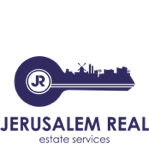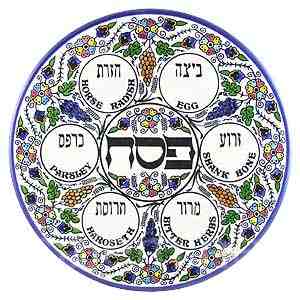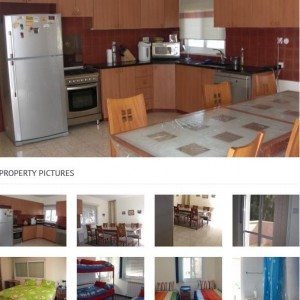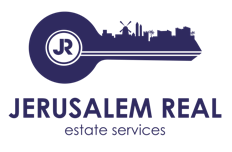
Individuals that own an apartment in Israel (hereinafter “taxpayer”) and receive rental income from it, need to check if they owe tax on the income. This article acts as a guide for tax payments and tax relief on rental income of residential apartments in Israel.
There are three options that a taxpayer can choose from. Each option can be chosen for each rental apartment separately:
- Tax exemption (full or partial)
- Reduced tax at a flat rate of 10%
- Tax based on the regular tax brackets
The Tax Exemption Option (Full or Partial)
The 1990 Income Tax Ordinance (Tax Exemption on Income from Residential Apartment Rental) sets several cumulative conditions for providing an exemption from tax on rental income from residential apartments in Israel:
- The apartment, by its nature, is intended for residential use;
- The apartment is not registered as a business asset and is not required to be registered a such;
- The apartment is rented to an individual. In certain circumstances it is also possible to rent out the apartment to an organization.
- The apartment is used by the tenant strictly for residential purposes only; the taxpayer has a declaration in writing stating this, or alternatively has a rental agreement clearly stating that the apartment is used by the tenant as a place of residence only.
Monthly rental income includes income from all residential apartments rented out either by the taxpayer, his/her domestic partner, or their child up to age of eighteen, whether the apartment is rented out as a place of residence or for commercial purposes (for example, a residential apartment rented to a lawyer).
Calculating the Exemption:
- Full Exemption: If the total monthly rental income does not exceed the amount of NIS 5,030 in any month of 2016 (hereinafter the “Exemption Ceiling”), the total income will be exempt from tax as long as the above mentioned conditions are met. The exempt ceiling for 2017 is NIS 5,010
- Partial Exemption: When the monthly rental income is greater than the Exemption Ceiling) but does not exceed double this amount (NIS 10,060), the exemption is to be calculated in the following manner:
- Subtract the Exemption Ceiling from the monthly rental income actually received, and the difference between them will be considered as the surplus amount.
- Subtract the surplus amount from the Exemption Ceiling. The difference between them is the exempted amount.
- Subtract the exempted amount from the residential apartment rental monthly income actually received. The difference is the amount on which tax is owed.
For Example:
The monthly rental income actually received is NIS 6,000. Since it is greater than the Exemption Ceiling, but lower than double the ceiling amount it will be taxed as follows:
A. Residential apartment rental income actually received NIS 6,000
Exemption Ceiling (NIS 5,030)
Amount exceeding the ceiling NIS 970
B. Exemption Ceiling NIS 5,030
Amount exceeding the ceiling (NIS 970)
Exempted amount NIS 4,060
C. Residential apartment rental income actually received NIS 6,000
Exempted amount (NIS 4,060)
Taxed amount NIS 1,940
The taxpayer’s marginal tax rate will apply to the taxed amount, taking into consideration their total income. (Regarding income from apartment rentals, the first tax bracket is 31%. For taxpayers who are sixty years or older during the tax year, the first tax bracket is 10%).
The taxpayer is allowed to deduct from the taxed amount any ongoing expenses related to the production of the rental income, such as: legal fees for preparing the rental contract, ongoing repairs paid throughout the tax year, and depreciation of 2% of the cost of purchasing the rented structure[1] (not including the cost of the land). The expenses deducted will remain at a ratio between the amount of rental income liable to tax and the total rental income earned. Example- the ratio between the total income of 6,000 NIS and the taxed amount of 1,940 NIS, as mentioned in the example above, is 32%. Similar to this ratio, 32% of the total expenses will be able to be deducted from the taxed amount of 1,940 NIS.
The taxpayer’s marginal tax rate will apply to the taxed amount, taking into consideration their total income. (Regarding income from apartment rentals, the first tax bracket is 31%. For taxpayers who are sixty years or older during the tax year, the first tax bracket is 10%).
The taxpayer is allowed to deduct from the taxed amount any ongoing expenses related to the production of the rental income, such as: legal fees for preparing the rental contract, ongoing repairs paid throughout the tax year, and depreciation of 2% of the cost of purchasing the rented structure[1] (not including the cost of the land). The expenses deducted will remain at a ratio between the amount of rental income liable to tax and the total rental income earned. Example- the ratio between the total income of 6,000 NIS and the tax owed of 1,940 NIS, as mentioned in the example above, is 32%. Similar to this ratio, 32% of the total expenses will be able to be deducted from the taxed amount of 1,940 NIS.
If during the sale of the residential apartment for which the exemption option was chosen, capital gain tax is owed, the depreciation that could have been claimed against the exempted part of the rent income will be able to be deducted from the value of the purchase thus lowering the capital gain tax.
Please note that in order to settle the tax payment in the event of a “partial exemption” the taxpayer will need to open a file with the Tax Assessment Office near his/her place of residence for the purpose of reporting property rental.
Disqualified/No Exemption: When the amount of monthly income from rent exceeds more than double the Exemption Ceiling (NIS 10,060), there will be no exemption and the entire amount of monthly income from rent will be liable to tax. In this situation it will be possible to choose to be taxed either via the reduced 10% flat rate tax charge or via the tax brackets option (see below).
2. The reduced 10% flat rate tax option (hereinafter “reduced tax option”):
According to section 122 of the Income Tax Ordinance one may pay a reduced 10% flat rate tax on rental income from residential apartments in Israel.
This option will apply under the following conditions:
- The apartment is used as a place of residence in Israel.
- The income from the rent is not considered income from a business as defined in section 2(1) of the Income Tax Ordinance.
Please note that if you have chosen the reduced tax option, you will not be entitled to deduct any expenses from the production of the rental income and /or depreciation of the apartment, and you will not be entitled to offset, credits, or exemptions (including the exemption under the exemption option as discussed above) connected to the rental income or from the applicable tax. When the taxpayer sells the residential apartment there might be a need to pay capital gain tax. And that time, the depreciation amount that could not have been deducted as stated above from the rental income, will be able to be deducted from the initial value of the purchase of the apartment thus lowering the capital gain tax that might apply.
It should be emphasized that under this option, tax should be paid no later than 30 days from the end of the tax year in which the rental income was received. Payment after the above mentioned date will require the taxpayer to pay interest on the amount of tax owed.
Taxpayers with a file with the Income Tax Authority (ITA) can choose to make the payment on the Authority’s website using the Income Tax Payments application.
Taxpayers who do not have a file with the ITA can pay the tax at the Post Office by using a reporting voucher named “Request for Tax Payment on Income from apartment Rental” which is provided by the Tax Assessment Office near their place of residence. The back of the voucher has detailed instructions on how it should be filled out.
Please note that if your yearly rental income, for which you paid a reduced 10% rate tax, does not exceed NIS 333,000 in 2016, you might not be obligated to submit an annual report to the ITA. This is only if the rest of your income does not exceed the annual reporting requirement. In any event a tax assessment clerk can request you to file a report regardless.
It is not possible to request an exemption under the “1990 Income Tax Ordinance (exemption from tax on residential rental income)” and also use the reduced tax option on the amount that exceeds the exemption, from the same residential apartment.
You can choose a different tax calculation option for each residential apartment you receive rental income.
3. Tax Charges According to the Tax Brackets:
Under this option the taxpayer’s marginal tax rate will apply based on the entirety of his/her income. Please note that for rental income the first tax bracket is 31%, (apart from taxpayers who are 60 or older during the tax year, for which their first tax bracket is 10%). This option allows claiming ongoing expenses made during the production of the income.
If capital gain tax will be owed on the sale of the residential apartment for which this option was chosen, the depreciation amount that was claimed against the rental income will be deducted from the value of the purchase.If a taxpayer decides to choose this option, he/she will be required to file an annual report with the Income Tax Authority.
[1] An individual who chooses the full exemption cannot deduct depreciation (a certain rate of the apartment’s value) from the exempt part of his rental income. An individual who chooses the 10% tax rate cannot deduct depreciation at all, as explained below.
Source: Dave Wolf Law Firm & Co
For more information regarding tax laws please contact Dave Wolf:

Partner at Dave Wolf & Co. Law Firm
http://www.lawfirmwolf.com/
Like this:
Like Loading...














 Your Home in Jerusalem connects homeowners with travelers who seek the space, value, and amenities
of vacation rental homes as an alternative to hotels.
Your Home in Jerusalem connects homeowners with travelers who seek the space, value, and amenities
of vacation rental homes as an alternative to hotels.  The team at Jerusalem Real are more than real estate agents looking for real estate listings. We are a dedicated team of truly passionate, property professionals, who understand our client’s needs and wants.
The team at Jerusalem Real are more than real estate agents looking for real estate listings. We are a dedicated team of truly passionate, property professionals, who understand our client’s needs and wants.